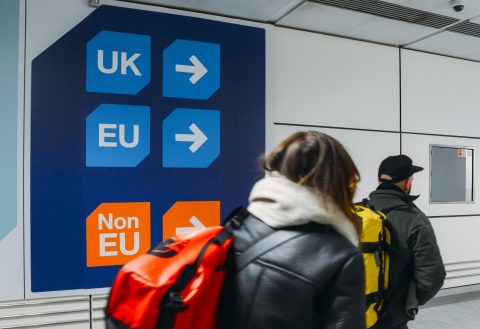
The Home Office’s published its latest Statement of Changes to the Immigration Rules (HC 617) on 10 September 2021. The Statement makes changes to several visa routes, which we summarise in this post.
For EU citizens, a number of things have changed. Two announcements particularly stand out. The first concerns COVID-19 concessions for those EU citizens with status under the EU Settlement Scheme (EUSS). The Home Office announced on 10 June 2021 that applicants to the Scheme whose continuous residence in the UK has been affected by coronavirus would still be able to qualify for status, even if they exceeded permitted absence from the UK. From 6 October 2021, that exception or concession will cease to apply, instead it has been formalised and incorporated into the Immigration Rules.
The second concerns family members of EU/EEA citizens with status under the Scheme who want to join their EU/EEA family members in the UK. The EUSS enables EU, EEA, and Swiss citizens living in the UK before 31 December 2020 to obtain immigration status to continue living in the UK after Brexit. The EUSS family permit, then, allows certain family members to join their EU/EEA family member in the UK even after 31 December 2020, if that family member has the required immigration status. From 6 October 2021, those joining family members will be allowed to apply to the EUSS whilst they are present in the UK as a visitor. Previously, they had to apply from abroad. This will significantly simplify the process of application for joining family members.
For all non-UK residents traveling to the UK, the Statement confirmed previously announced changes relating to documents required for those entering the UK or seeking entry through the Channel Tunnel. From 1 October 2021, the only acceptable document to evidence nationality and identity at the UK border will be a passport. National identity cards are no longer accepted. The only exceptions to this rule are British citizens of Gibraltar, who can use their ID cards indefinitely to enter the UK, and EU/EEA/Swiss citizens with (pre-)settled status under the EUSS. The latter are still able to use their national identity cards until at least the end of 2025.
Other changes include the addition of Iceland and India to the Youth Mobility country list, minor relaxations of endorsement requirements for the Global Talent visa, and consolidation of new visa routes. Concerning the Youth Mobility visa, young (under 30) nationals of India and Iceland may now qualify for a flexible two-year working visa in the UK. The Youth Mobility Visa does not lead to settlement and operates with country-specific quota. Notably, Australia, with its 25.36 million inhabitants, receives 30,000 visas to distribute in 2022, whilst India, a country over 50 times more populous than Australia, gets 10% of that, with 3,000 visas.
New visa routes include the International Sportsperson visa, which builds upon the old T2 Sportsperson and T5 Creative Worker or Sporting Worker to create a new category. The main requirement for getting an International Sportsperson visa is to have an endorsement from the UK governing body of the relevant sport.
There are also changes to settlement routes for Afghan citizens. Specifically, the Statement incorporates the Afghan Relocations and Assistance Policy (ARAP) and some other provisions regarding Afghans into the immigration rules. ARAP was put in place to relocate some interpreters and civil servants who served alongside British armed forces in Afghanistan in preparation for the withdrawal of troops in April 2021. In light of recent developments, applicants under ARAP are no longer required to make their application from Afghanistan as they were previously. The Statement does not expressly mention the other Resettlement Scheme for Afghans, the Afghan Citizen Resettlement Scheme (ACRS) for Afghans at risk. The ACRS allows 5000 Afghan citizens to relocate to the UK in 2022, with 15000 more to follow in the next five years. The requirements for qualification under ACRS were addressed in a separate statement, though some detail is still lacking.
Most of these changes are beneficial to applicants and the Home Office alike. They are not earth-shattering; above anything else, they simplify some of the procedures and structures of the visa system. Nevertheless, that system can still be very complicated and confusing. If you need legal assistance with the EU Settlement Scheme, or have any other questions, you can contact us here, call us on 020 8142 8211, or send us a question on WhatsApp.
Categories: EU Citizen RightsImmigration Rights
